Juan María Solare is an Argentine composer and pianist.

The most distinctive music of Uruguay is to be found in the tango and candombe; both genres have been recognized by UNESCO as an Intangible Cultural Heritage of Humanity. Uruguayan music includes a number of local musical forms such as murga, a form of musical theatre, and milonga, a folk guitar and song form deriving from Spanish and italian traditions and related to similar forms found in many American countries.

Marlos Nobre is a Brazilian composer. He has received commissions from numerous institutions, including the Ministry of Culture in Spain, the Free University of Music of São Paulo, the Neuchâtel Chamber Orchestra in Switzerland, The Apollon Foundation in Bremen, Germany and the Maracaibo Music Festival in Venezuela. He has also sat on the juries of numerous international music competitions, including the Cità di Alessandria Prize, the Arthur Rubinstein Piano Master Competition and the Paloma O'Shea Santander International Piano Competition.

Dieter Lehnhoff Temme is a German-Guatemalan composer, conductor, and musicologist.

Henrique José Pedro Maria Carlos Luis Oswald was a Brazilian composer and pianist.
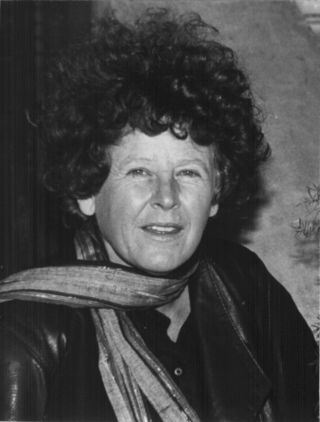
Renée Pietrafesa Bonnet was a French and Uruguayan composer, pianist, organist, harpsichordist and conductor. Her compositions spanned both popular and classical genres which included Electroacoustic music.

Alicia Urreta was a Mexican pianist, music educator and composer.

Cecilia Arizti Sobrino was a Cuban composer, pianist and music educator.
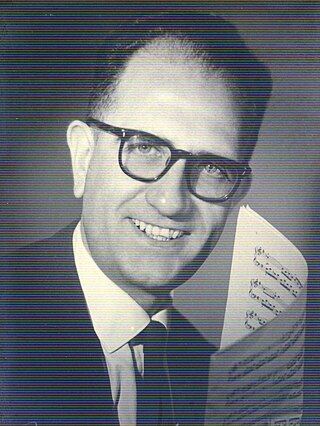
Pedro Ipuche Riva was an Uruguayan composer of classical music. According to the catalogue by the Uruguayan musicologist Elsa Sabatés in Músicos de aquí, Vol 4 he wrote 150 compositions, including 6 symphonies and 2 operas.
Patricia Caicedo is a Colombian-Spanish classical soprano and musicologist who specializes in the study and performance of the Latin American and Spanish art song repertoire in Spanish, Catalan, Portuguese and Indigenous languages. She is also a trained physician.
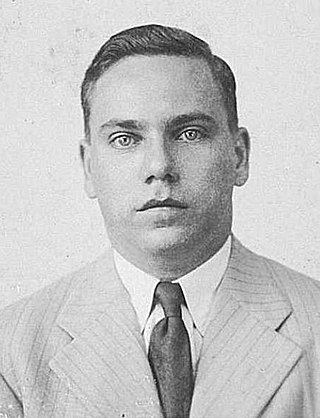
Adolfo Odnoposoff was an Argentine-born-and-raised cellist of Russian ancestry who performed in concerts for 5 decades in South, Central, and North America, the Caribbean, Europe, Israel, and the former USSR. He had performed as principal cellist in the Israel Philharmonic and many of the important orchestras of Latin America. He had soloed with major orchestras under conductors that include Arturo Toscanini, Erich Kleiber, Fritz Busch, Juan José Castro, Rafael Kubelik, Victor Tevah, Luis Herrera de la Fuente, Carlos Chavez, Paul Kletzki, Luis Ximénez Caballero (es), Willem van Otterloo, Sir John Barbirolli, Eduardo Mata, Antal Doráti, Jorge Sarmientos (es), Erich Kleiber, George Singer (1908–1980), Ricardo del Carmen (1937-2003), Anshel Brusilow, Pau Casals and Enrique Gimeno. He also performed a Khachaturian work under the direction of Khachaturian.

Federico Jusid is an Argentine composer who resides and works between Madrid and Los Angeles. He has written the scores for more than 40 feature films and over 25 television series.
His work includes the score for the Academy Award-winner for Best Foreign Film The Secret in Their Eyes, for which he received the nomination for the Spanish Academy Goya Award for Best Original Score.
He has recently worked with Alberto Iglesias writing additional compositions for the original score of Ridley Scott's Exodus: Gods and Kings, and he has also composed the OST for Kidnap with Halle Berry, and Happy 140. Other notable scores include The Life Unexpected, Everybody Has a Plan, The Escape, The Hidden Face, I Want to Be a Soldier, and more recently Magallanes, Getulio, The Ignorance of Blood, Betibu or Francis, Father Jorge.
On television, his most recognised work is the soundtrack for the Spanish historical drama Isabel, with whom he won several awards, such as International Film Music Critics Association (IFMCA) Award and Reel Music Award. In 2015 he made the score for the TV series Under Suspicion and The Refugees and just released the historic drama Charles, King Emperor, sequel of Isabel.
He has also composed works for concert hall premiered throughout Europe and America by recognized soloist and chamber ensembles. As a pianist and composer, he has performed and toured prestigious theaters in Europe, Asia and America. He recorded for labels BMG, IRCO, Magenta Discos and Melopea.
Alberto Soriano was an Argentine composer and ethnomusicologist. He was born in Santiago del Estero.

Giovanni Nesi is an Italian pianist and professor of academic music.
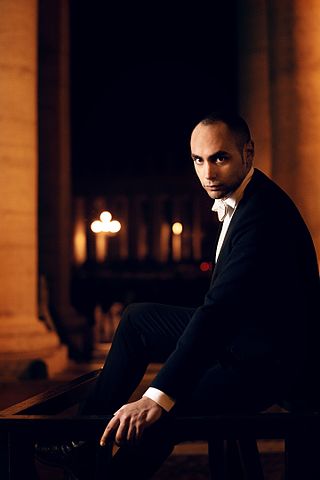
Marcos Madrigal (Havana) is a Cuban pianist.
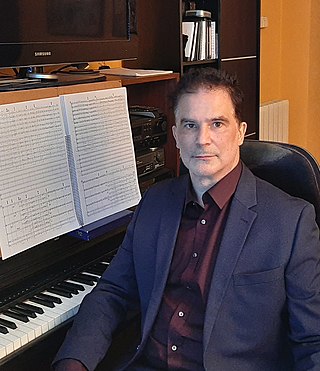
Eduardo Soutullo is a Spanish composer. He was the recipient of the Spanish Ministry of Culture's National Prize in Music (composition) in 2023. The jury awarded the prize to Soutullo for "the unanimous international recognition of his music especially his orchestral production, highlighting the premiere in Saint Petersburg of his antiwar cantata "The lament of sunflowers”.
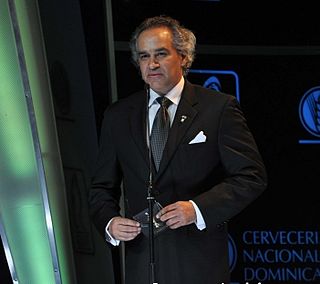
José Antonio Molina Miniño is a Dominican conductor, pianist and composer.
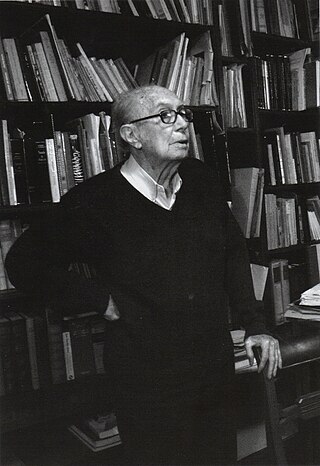
Enrique Iturriaga Romero was a Peruvian composer and educator.
Josefa Somellera Guiterrez Zavalla Rebollo (1810-1885) was an Argentine composer and singer who performed and published under the name Josefa Somellera.
Federico Ruiz Hurtado is a Venezuelan composer, arranger, and arts administrator. He has composed in diverse genres including symphonic, chamber, and electroacoustic music.















